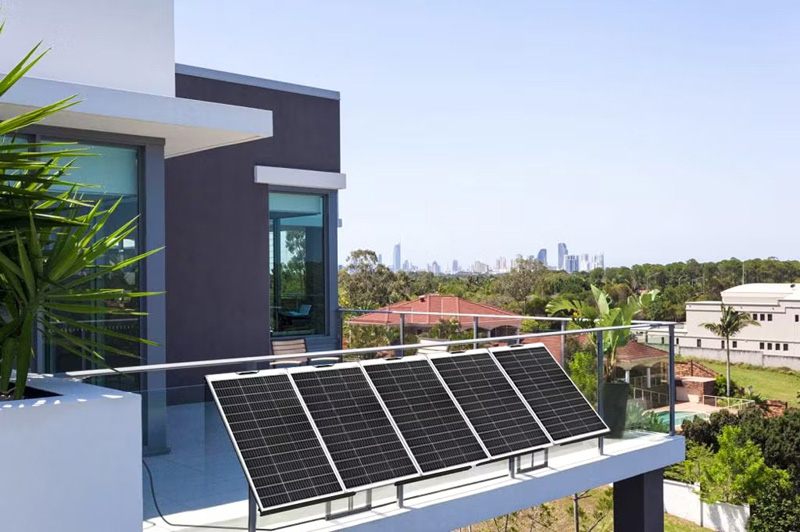Alemania está experimentando un rápido aumento en la adopción de sistemas solares fotovoltaicos (FV) para balcones, a medida que más propietarios e inquilinos optan por soluciones de energía renovable a pequeña escala. Estos kits solares listos para usar, que se instalan fácilmente en balcones o terrazas, están ganando popularidad gracias a su precio asequible, su simplicidad y su contribución a la reducción de la factura de la luz.
Según datos recientes de la Asociación Alemana de la Industria Solar (BSW-Solar), las ventas de sistemas fotovoltaicos para balcones se duplicaron el año pasado, con más de 200.000 unidades instaladas en todo el país. Esta tendencia refleja el creciente interés de los consumidores por la generación descentralizada de energía en un contexto de altos precios de la electricidad y fuertes incentivos gubernamentales.
"Los módulos solares para balcones ofrecen un acceso fácil a la energía solar, especialmente para los residentes urbanos que carecen de espacio en sus azoteas", afirmó Carsten Körnig, director ejecutivo de BSW-Solar. "Son una forma práctica de que las personas participen en la transición energética y ahorren dinero".
Estos sistemas compactos suelen constar de uno o dos paneles solares (300-600 vatios) y un microinversor, lo que permite a los usuarios conectarlos directamente a una toma de corriente doméstica. La energía generada compensa el consumo de la red, reduciendo el coste anual de electricidad en aproximadamente 100-200 € por sistema.
Para acelerar aún más la adopción, el gobierno alemán ha simplificado los trámites de registro e introducido subvenciones en algunos estados federados. Además, una reciente enmienda a la legislación energética exime a los sistemas fotovoltaicos de balcones pequeños de complejos requisitos burocráticos, haciéndolos aún más accesibles.
Los expertos predicen que el mercado seguirá expandiéndose a medida que la tecnología mejore y aumente la concienciación. Con el objetivo de Alemania de generar el 80 % de su electricidad a partir de energías renovables para 2030, la energía solar fotovoltaica en balcones podría desempeñar un papel clave en la democratización de las energías limpias.


 L-V 9AM a 18:00
L-V 9AM a 18:00  admin@cowellxm.com
admin@cowellxm.com
 315 No.13 Malong Road, Huli District,Xiamen City, Fujian Province,China
315 No.13 Malong Road, Huli District,Xiamen City, Fujian Province,China




